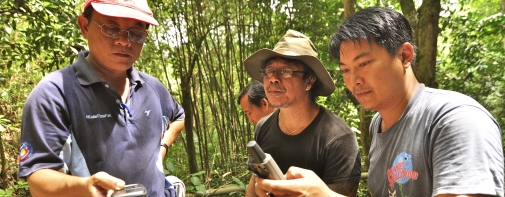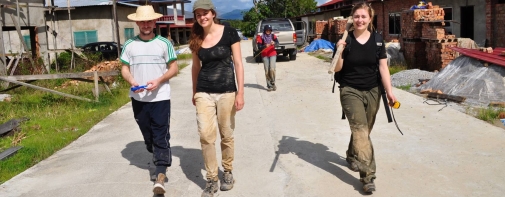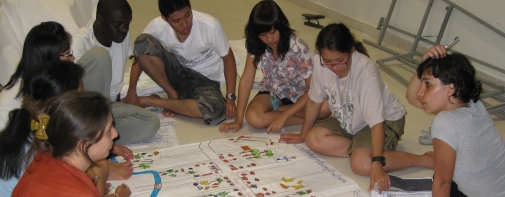About the field course
Full course description at kurser.ku.dk

Interdisciplinary Land Use and Natural Resource Management
Duration: One block (9 weeks) Credits: 15 ECTS
Level of Course: MSc
Examination: Written reports and oral examination 7-point scale, external examiner. All aids allowed.
Teaching: Teaching divided in lectures, exercises and discussions, student presentations and individual supervision. Lectures and exercises take place at UCPH. About 2 weeks of field work in a country of the Global South.
Teaching Period: Block 3 (February - April)
Teaching Language: English

Course Objectives
- Experience of the research process in its entirety (formulating a research question, preparing design, planning and implementing of data collection, analyzing data, and writing and presenting an academic report).
- Enabling students to apply their own disciplinary skills in interdisciplinary problem-based group work.
- Training in field based investigation of concrete topics/problems.
- Ensuring exposure to methods from both natural and social science.

Course Content
The course is jointly organised by the Faculty of Science at the University of Copenhagen and Roskilde University and attracts students from a range of natural and social science disciplines. Most land use and natural resource management issues are best addressed in an interdisciplinary manner. Therefore, the central theme of the course is to learn and apply interdisciplinary methods and theoretical approaches through problem-oriented field work in collaboration with local partners.
While working with students from other disciplines, students should apply their own disciplinary skills in order to address the identified topics/questions within land use, rural development and natural resource management. Close collaboration with local students and teachers will ensure exposure to working in an intercultural environment.
The course includes training in analysing and developing project proposals; planning and conducting field work; selecting and applying data collection methods (e.g. questionnaire design, interview techniques, biophysical sampling methods, PRA techniques); recording and processing data; and writing field reports. This will enable students to participate effectively in interdisciplinary assignments and serve as a basis for understanding the strengths and weaknesses of each student’s own discipline, including the comparative advantages of academic disciplines relevant to rural livelihoods and natural resource management.
The course consists of: Lectures and practical sessions on natural and social science methods and tools used in fieldwork. Theoretical/contextual and regional specific lectures. Student presentations of key texts.
Group work: Each student will participate in a supervised group. Each group will prepare a synopsis before the field trip, carry out fieldwork, prepare and submit a course report. 2-3 weeks field work in Europe or a country of the Global South.
Course Literature
Available on Absalon, when you sign up for the course
